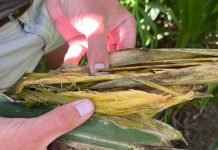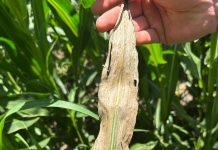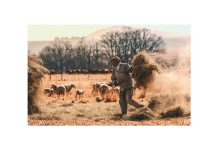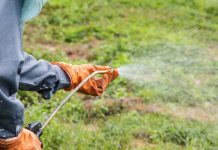September 2020 – Most pesticides that are supplied to producers are packed in HDPE (high density polyethylene) containers, while seed is supplied in woven PP (polypropylene) bags. Estimated quantities of HDPE entering the agriculture sector is around 8 500 metric tons and seed bag PP is around 2 000 tons.
All these plastic containers and bags are recyclable and are highly sought after by the recycling industry. There is no need for agriculture to pollute the terrestrial, aquatic or marine environment with empty pesticide containers or seed bags.
Recycling containers and bags
Recycling starts on the farm. Triple rinsing is a requirement to cleanse empty HDPE pesticide containers efficiently, while a simple rinse with running water will clean a seed bag to the point where it is safe for recycling. It is a pity that some producers burn or bury such materials on the farm, especially with the global concern about pollution and waste management. CropLife SA has guidelines on triple rinsing and cleansing of seed bags on the website (www.croplife.co.za) under container management. It takes less than three minutes to triple rinse a HDPE container and less than two minutes to cleanse a seed bag.
After cleaning – who and what then?
There is a network of CropLife SA-certified plastic recyclers on
https://croplife.co.za/container-management/. These recyclers take the triple-rinsed empty HDPE containers and seed bags, and recycle them into other commodities. Laws and regulations that govern waste in South Africa classify such cleansed containers and seed bags as non-hazardous, meaning it does not require special permits for transport from the farm to collection points or to recycling plants. Service providers who collect containers and bags need not be licensed, provided they only collect triple-rinsed empty containers and thoroughly cleansed seed bags. Transporting unrinsed containers fall squarely within the ambit of the regulations for dangerous goods transportation and such transporters must be licensed as such.
Recyclers that operate processing plants where the plastic material is further cleansed and processed into pellets and re-manufactured into other commodities such as ‘plastic wood’, plastic furniture, storage bins, pallets, decking materials, troughs and so forth, must be licensed by the environmental authorities. There is no issue with any of the service providers that are certified by CropLife SA and producers can rest assured that these individuals and companies operate according to the policies and statutes of the country.
Plastic materials that arrive at the recyclers are sorted into the different types before being processed. The HDPE and PP from the agricultural sector are treated with great respect, because it is valuable material and generally much cleaner than the other plastic materials that are collected for recycling. HDPE containers are shredded with a very powerful industrial-grade shredder before being rinsed at high temperatures. These small shreds or chips go into a bin where it is heated to over 150˚C and the molten material is extruded, cooled down and chopped into small granules. Testing of the granules is standard practice and levels of pesticide residues are hardly ever detected, which means the plastic is clean. Granules are then used to manufacture a wide range of commodities.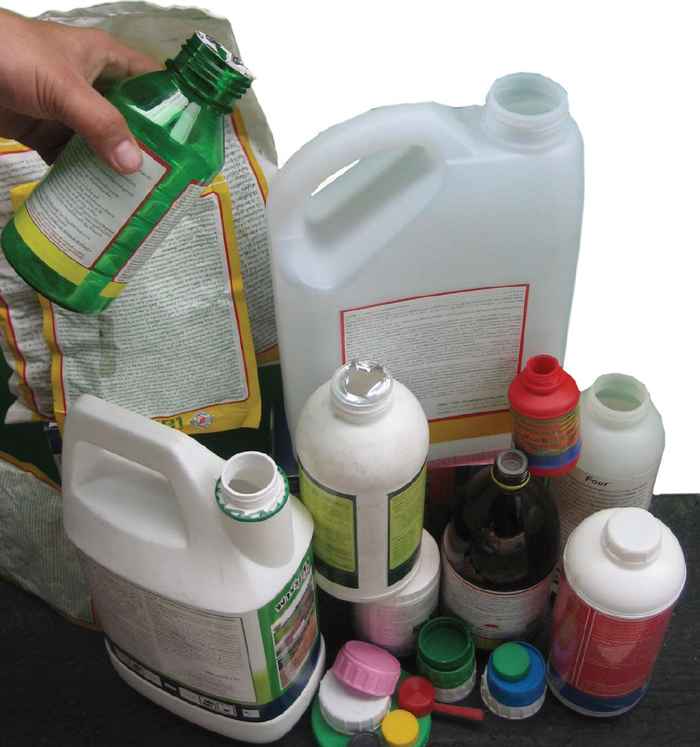
Caution – do not get caught by fly-by-night operators
As expected, not all collectors and recyclers of waste plastics play by the rules. Producers are cautioned against dealing with service providers that are not certified by CropLife SA, because there is no guarantee that such service providers work legally and responsibly. CropLife SA issues a certificate of approval to each certified plastic recycler, which he or she is obliged to show producers before being allowed to take empty containers or seed bags. The service provider must also issue the producer with a CropLife SA certificate of adequate empty container disposal every time the producer disposes of containers or bags via a CropLife SA-certified plastic recycler. Some of the unscrupulous operators take containers from producers and sell them as water and food containers. This goes against all principles of human safety and cannot be tolerated. Producers should contact CropLife SA and report such incidents immediately.
The world is watching farming with a hawk’s eye
It is a fact that all people eat, but while enjoying the producers’ food, the public easily target producers when they see something worth complaining about. A mountain of unrinsed containers on a farm is not only unsightly, it is unlawful and a serious human and environmental health risk. Do not offer the antifarming lobbyists tools to portray producers as rogues or polluters by not recycling empty containers and seed bags.
Let us collectively decide that all farm plastics need to be recycled; it is the right thing to do.
For more information contact Dr Gerhard Verdoorn from CropLife SA at 082 446 8946 or gerhard@croplife.co.za.



